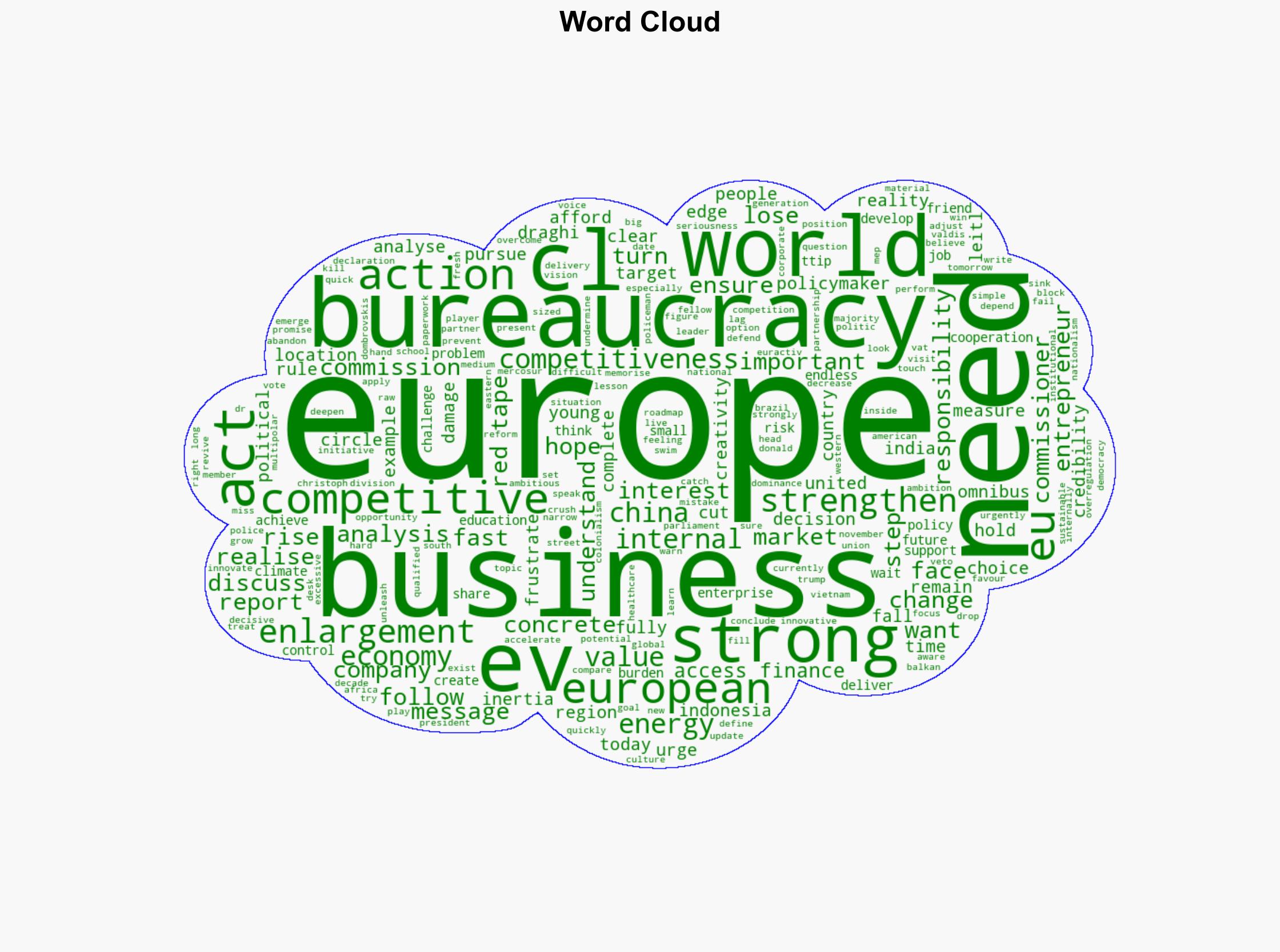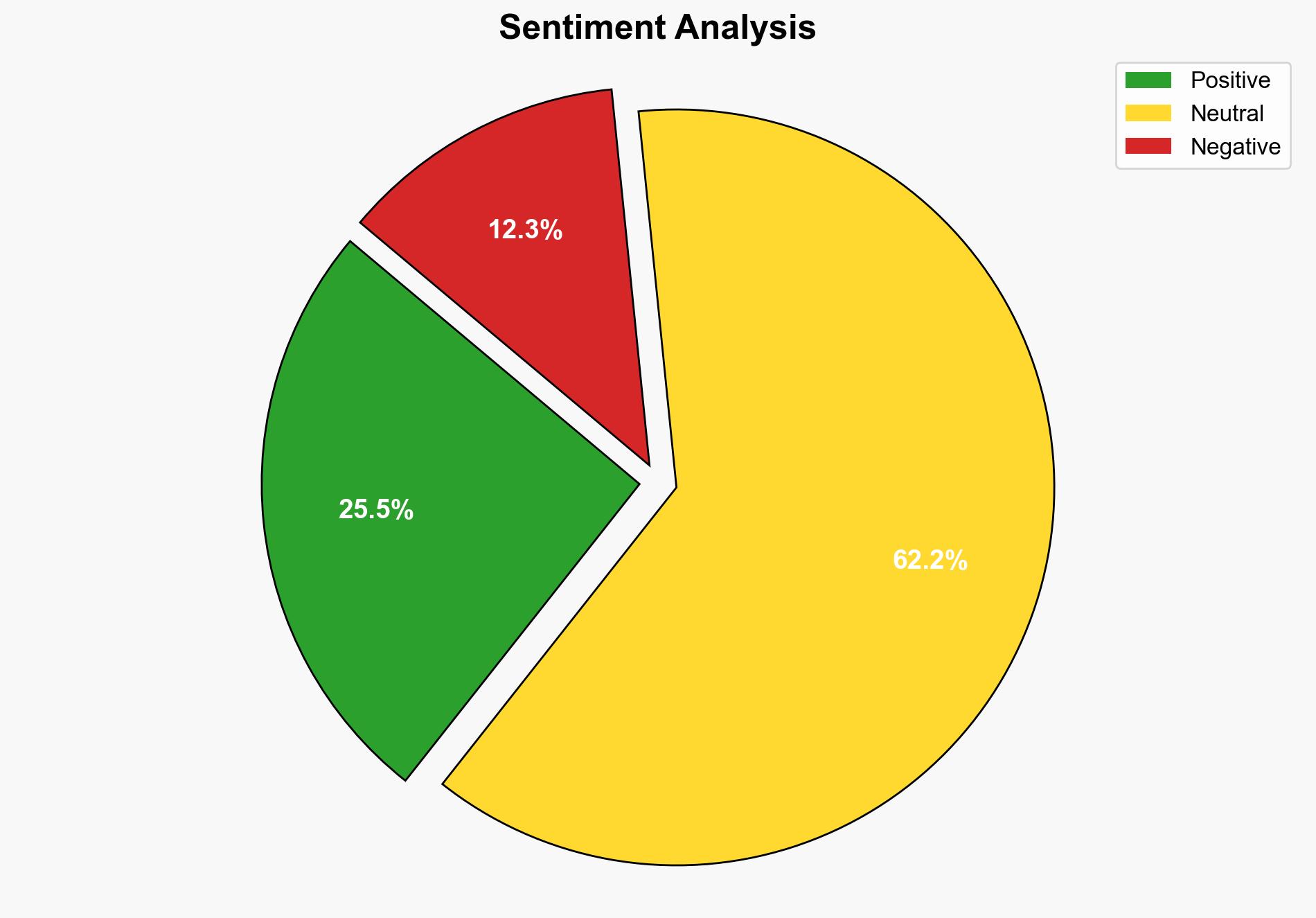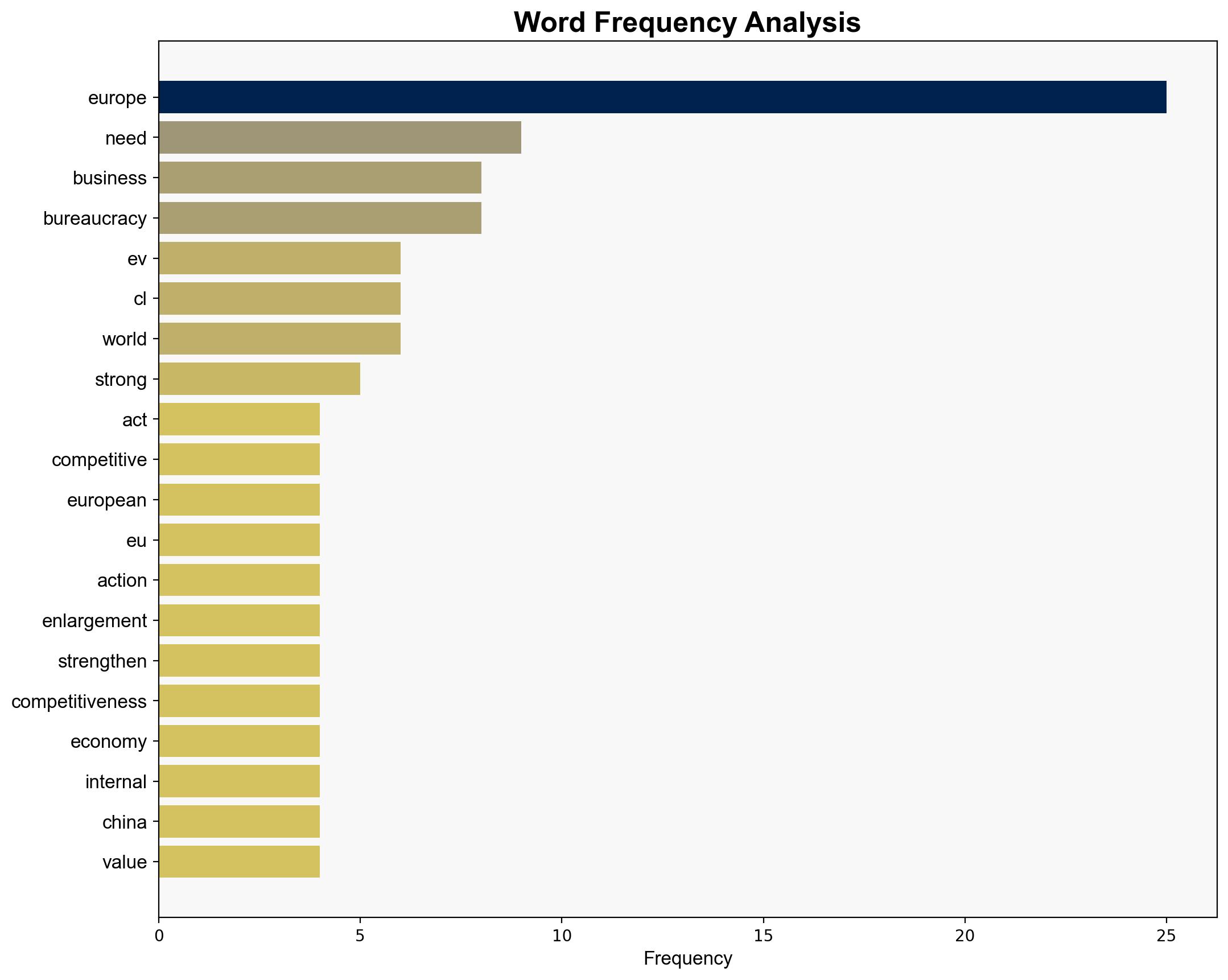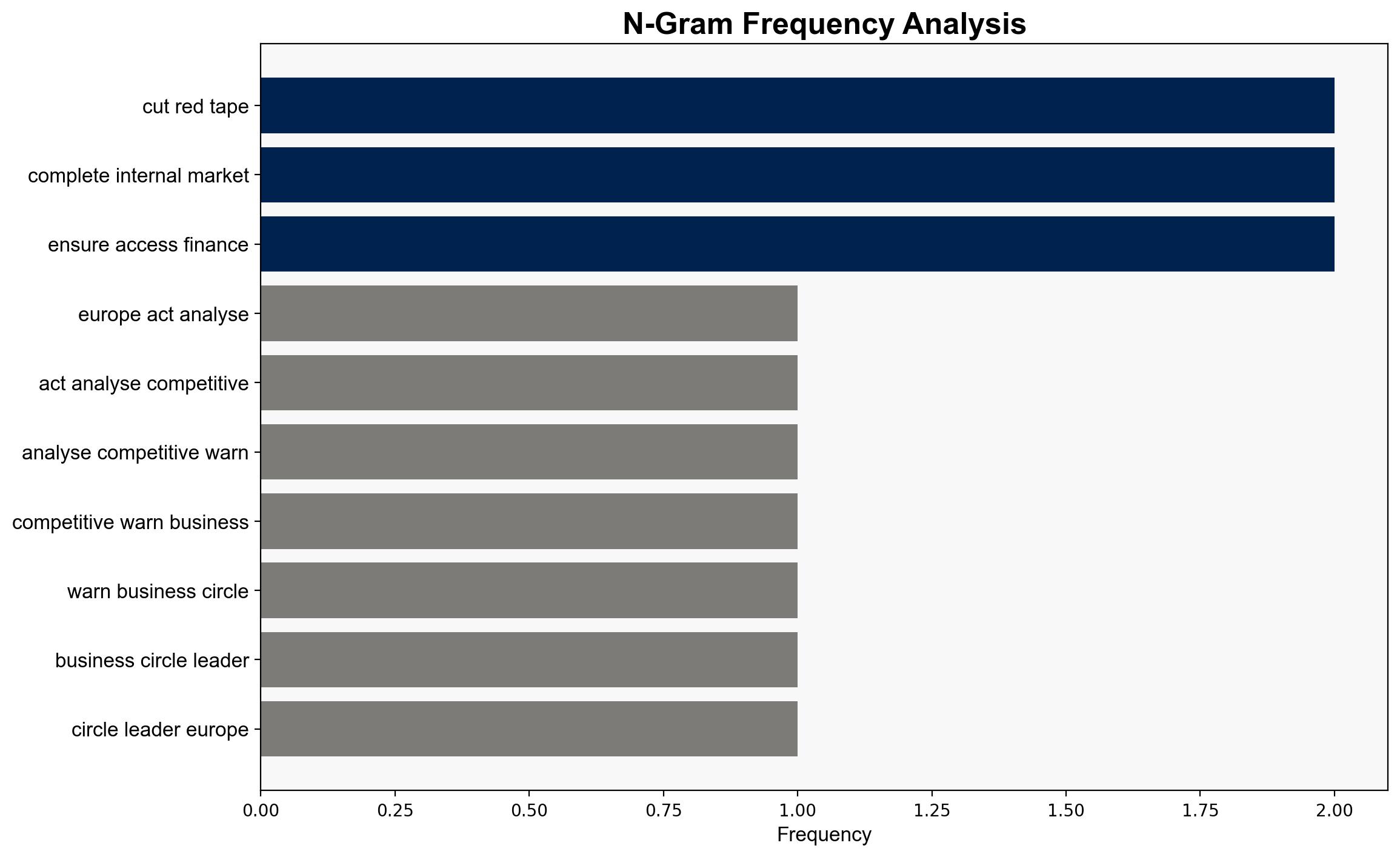Europe must act not analyse to be competitive warns Business Circle leader – EURACTIV
Published on: 2025-11-06
Intelligence Report: Europe must act not analyse to be competitive warns Business Circle leader – EURACTIV
1. BLUF (Bottom Line Up Front)
The most supported hypothesis is that Europe’s competitiveness is hindered by bureaucratic inertia and requires immediate reform and decisive action to maintain its global economic position. Confidence in this assessment is moderate, given the complexity of European Union (EU) dynamics and potential resistance from member states. Recommended action includes prioritizing internal market reforms and reducing regulatory burdens to foster innovation and competitiveness.
2. Competing Hypotheses
1. **Hypothesis A**: Europe’s competitiveness is primarily hindered by bureaucratic inertia and overregulation, necessitating immediate reforms to cut red tape and accelerate decision-making processes.
2. **Hypothesis B**: The primary challenge to Europe’s competitiveness is external, stemming from geopolitical shifts and rising competition from emerging economies, requiring strategic alliances and external policy adjustments.
Using the Analysis of Competing Hypotheses (ACH) 2.0, Hypothesis A is better supported by the source intelligence, which emphasizes internal bureaucratic challenges and the need for immediate action to revive competitiveness.
3. Key Assumptions and Red Flags
– **Assumptions**:
– Hypothesis A assumes that internal reforms can significantly impact competitiveness without considering external geopolitical factors.
– Hypothesis B assumes that external threats are the primary drivers of competitive decline, potentially underestimating internal inefficiencies.
– **Red Flags**:
– Potential bias in overemphasizing internal factors without adequate consideration of external economic pressures.
– Lack of specific data on the effectiveness of proposed reforms and their potential impact on competitiveness.
4. Implications and Strategic Risks
– **Economic Risks**: Failure to address bureaucratic inefficiencies could lead to a decline in Europe’s attractiveness as a business location, impacting economic growth and employment.
– **Geopolitical Risks**: Without strategic alliances, Europe may struggle to compete with emerging economies, leading to diminished global influence.
– **Cascading Threats**: Prolonged inaction could exacerbate economic disparities within the EU, fueling political fragmentation and nationalism.
5. Recommendations and Outlook
- **Immediate Actions**: Implement targeted reforms to streamline regulatory processes and reduce bureaucratic burdens, focusing on sectors with high innovation potential.
- **Strategic Alliances**: Strengthen partnerships with emerging economies to leverage mutual economic benefits and counterbalance geopolitical shifts.
- **Scenario Projections**:
– **Best Case**: Successful reforms lead to enhanced competitiveness, attracting global investments and fostering economic growth.
– **Worst Case**: Continued bureaucratic inertia results in economic stagnation and loss of global influence.
– **Most Likely**: Partial reforms improve competitiveness moderately, but external challenges persist, requiring ongoing strategic adjustments.
6. Key Individuals and Entities
– Christoph Leitl, European Business Circle
– Valdis Dombrovskis
– European Commission
7. Thematic Tags
economic reform, EU competitiveness, regulatory policy, geopolitical strategy





